
Pursuing a Finance MBA in the United States can open doors to exciting career opportunities in the finance industry. The top 10 Finance MBA programs in the USA for 2024 offer unparalleled opportunities to gain expertise and network with industry leaders.
This article explores the top 10 Finance MBA programs, detailing their admission requirements, career paths, and unique aspects.
From rigorous coursework to hands-on experience, discover how these programs can help propel your career to new heights in the finance industry.
Factors to Consider When Choosing a Finance MBA Program in the USA
Here are some key factors to consider when choosing a Finance MBA program in US schools:
Your Career Goals:
- Industry Focus: Do you want to work in investment banking, private equity, or a specific financial sector like fintech or real estate? Some programs offer specializations or strong alumni networks in certain areas.
- Job Level and Location: Are you aiming for senior management positions or a career switch? Location matters, as programs on the East Coast tend to have strong Wall Street connections, while West Coast programs might be better for careers in venture capital or technology finance.
Program Curriculum and Specialization:
- Coursework: Review the core finance courses and electives offered. Do they align with your specific interests within finance (e.g., corporate finance, financial markets)? Are there opportunities for practical learning, like case studies or financial modeling competitions?
- Specializations: Many programs offer specializations in areas like financial engineering, investment management, or risk management. Choose a program with a specialization that aligns with your career goals.
School Reputation and Rankings:
- Overall Reputation: Top-ranked business schools generally have strong alumni networks and attract top recruiters. However, a high ranking doesn’t guarantee success, and there are excellent programs outside the top 10.
- Finance Program Rankings: Look for rankings specific to Finance MBA programs. These rankings consider factors like faculty expertise, career placement outcomes, and alumni satisfaction in finance careers.
Faculty and Career Services:
- Faculty Expertise: Research the faculty’s credentials and areas of expertise. Are there professors who specialize in your area of interest? Do they have industry experience?
- Career Services: A strong career services department can help you with resume writing, interview preparation, and job search strategies. Look for programs with dedicated career advisors for finance careers.
Cost and Financial Aid:
- Tuition and Fees: MBA programs can be expensive. Consider the total cost of attendance, including tuition, fees, and living expenses.
- Financial Aid: Research scholarship and financial aid opportunities offered by the schools. Consider factors like your academic record, work experience, and financial need.
Additional Considerations:
- Program Format: Choose a program format (full-time, part-time, online) that fits your schedule and learning style.
- Class Size and Student Body: Smaller class sizes can lead to more personalized attention and interaction with faculty and peers. Consider the diversity of the student body in terms of background and experience.
- Campus Culture and Location: Think about the overall campus environment and whether it suits your preferences. The location of the school can also be an important factor depending on your career goals and personal life.
Top 10 Finance MBA Programs in the USA for 2024

1. Harvard Business School
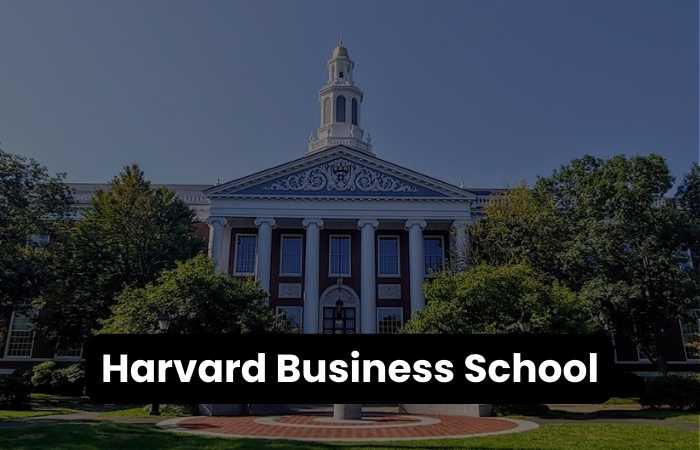
Harvard Business School (HBS) offers a prestigious MBA program renowned for its emphasis on leadership and comprehensive finance education.
The finance curriculum at HBS is designed to provide students with a strong foundation in financial theory and practice, combining rigorous academic coursework with real-world applications.
The program features core courses in corporate finance, financial markets, and investment management, supplemented by a diverse range of electives that allow students to specialize in areas such as venture capital, private equity, and global financial systems.
One of the unique aspects of the HBS MBA program is its case study method, which immerses students in real-life business scenarios, challenging them to think critically and make decisions under pressure.
This hands-on approach ensures that graduates are well-prepared to tackle complex financial issues in their careers.
HBS also offers extensive resources and opportunities for students interested in finance, including access to the Baker Library’s vast collection of financial data, as well as numerous finance-related clubs and organizations.
The school’s strong alumni network and close ties to leading financial institutions further enhance career prospects for graduates.
Admission Requirements
- Minimum Level of Education Completed: Bachelor’s Degree
- Average GPA: 3.7
- Average Standardized Test Scores:
- GMAT: 730
- GRE: 165 Verbal, 165 Quantitative
- Minimum Language Test Scores:
- IELTS: 7.5
- TOEFL: 109
- DUOLINGO: 130
Career Paths
Graduates of Harvard Business School’s MBA program typically pursue careers in prestigious roles within investment banking, private equity, hedge funds, venture capital, and financial consulting.
Many also go on to become financial analysts, portfolio managers, and chief financial officers in top financial institutions and corporations.
The school’s extensive alumni network and strong reputation in the finance industry provide graduates with unparalleled career opportunities and support.
Unique Aspects
HBS is known for its case study method, which provides practical, real-world experience.
This approach allows students to engage deeply with complex business scenarios, honing their decision-making and problem-solving skills.
Additionally, HBS offers unique programs like FIELD (Field Immersion Experiences for Leadership Development), where students gain hands-on experience in global finance markets.
The program’s integration of leadership training and global perspective makes it distinct among top MBA programs.
2. Stanford Graduate School of Business
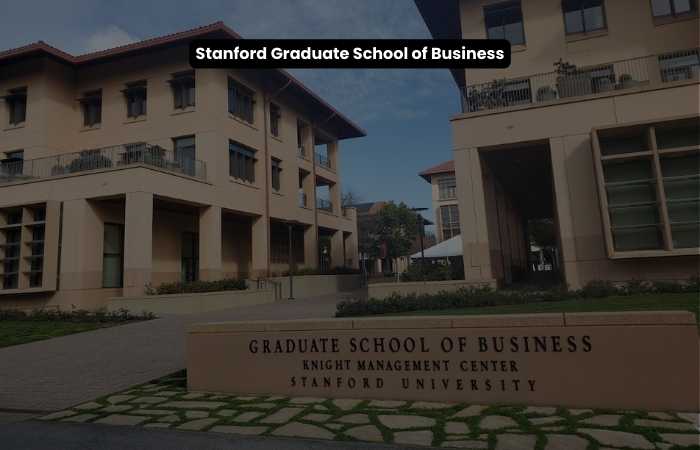
Stanford Graduate School of Business (GSB) is renowned for its innovative and rigorous MBA program, which includes a strong finance concentration.
The program emphasizes leadership, strategic thinking, and the application of finance principles in real-world scenarios. Stanford GSB’s finance curriculum covers a wide array of topics such as corporate finance, investment management, private equity, and global financial markets.
A standout feature of Stanford GSB is its focus on experiential learning. Through the school’s unique Leadership Labs, students engage in hands-on projects that develop their leadership and financial decision-making skills.
Additionally, the Global Management Immersion Experience allows students to gain international finance experience by working on projects in different countries.
Stanford GSB also boasts an impressive faculty, including Nobel laureates and leading researchers in finance. The school’s close proximity to Silicon Valley provides unparalleled access to venture capital firms, tech startups, and established financial institutions, offering students ample networking and career opportunities.
Admission Requirements
- Minimum Level of Education Completed: Bachelor’s Degree
- Average GPA: 3.8
- Average Standardized Test Scores:
- GMAT: 737
- GRE: 165 Verbal, 165 Quantitative
- Minimum Language Test Scores:
- IELTS: 7.0
- TOEFL: 105
- DUOLINGO: 125
Career Paths
Graduates of Stanford GSB often enter roles in venture capital, private equity, investment banking, and financial technology.
Many leverage the school’s strong ties to Silicon Valley to secure positions in tech finance, working with startups and established tech companies.
Additionally, graduates find opportunities in hedge funds, asset management, and financial consulting, benefiting from the school’s extensive network and reputation.
Unique Aspects
Stanford’s location in Silicon Valley offers unparalleled access to technology and venture capital firms.
The school’s emphasis on innovation and entrepreneurship allows students to explore finance roles within tech startups and large technology companies.
Stanford GSB’s Leadership Labs and Global Management Immersion Experience provide practical, hands-on learning opportunities, preparing students for leadership roles in the finance industry.
3. Wharton School of the University of Pennsylvania

The Wharton School at the University of Pennsylvania is a global leader in business education, renowned for its finance MBA program.
Wharton’s finance curriculum is extensive and rigorous, offering courses that cover everything from corporate finance and investment strategies to real estate and quantitative finance. This breadth allows students to tailor their education to their specific interests and career goals.
Wharton’s finance program is known for its strong emphasis on analytical skills and practical application. Students have access to state-of-the-art financial databases and are encouraged to participate in hands-on projects and case competitions.
The school’s partnership with leading financial firms provides students with valuable internship and job opportunities.
Wharton also offers numerous resources to support finance students, including specialized research centers like the Wharton Financial Institutions Center and the Weiss Center for International Financial Research.
The school’s extensive alumni network, which includes many leaders in the finance industry, further enhances career prospects for graduates.
Admission Requirements
- Minimum Level of Education Completed: Bachelor’s Degree
- Average GPA: 3.6
- Average Standardized Test Scores:
- GMAT: 730
- GRE: 164 Verbal, 164 Quantitative
- Minimum Language Test Scores:
- IELTS: 7.5
- TOEFL: 110
- DUOLINGO: 135
Career Paths
Graduates of Wharton’s MBA program frequently move into high-level roles in investment banking, corporate finance, asset management, private equity, and hedge funds.
The program’s strong quantitative focus prepares graduates for careers as financial analysts, portfolio managers, and chief financial officers.
The extensive Wharton alumni network provides graduates with numerous career opportunities and mentorship in the finance industry.
Unique Aspects
Wharton offers extensive resources and research centers, such as the Wharton Financial Institutions Center and the Weiss Center for International Financial Research, providing students with access to cutting-edge finance research and industry insights.
The school’s strong emphasis on analytical and quantitative skills equips students with the tools needed to excel in the finance industry.
Additionally, Wharton’s location in Philadelphia offers proximity to major financial hubs, enhancing internship and job placement opportunities.
4. University of Chicago Booth School of Business
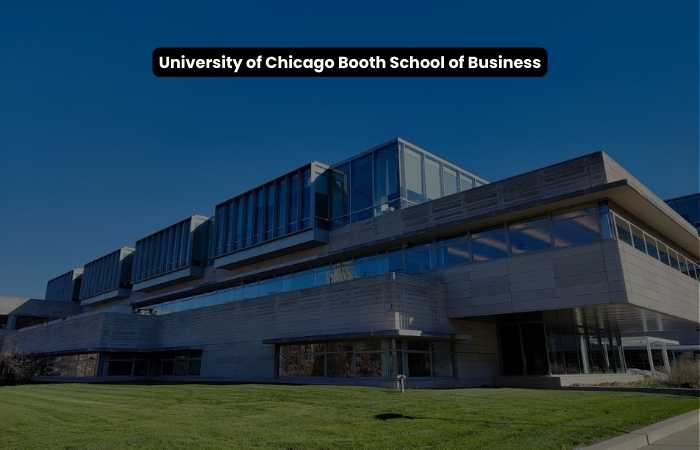
The University of Chicago Booth School of Business offers an MBA program that is highly regarded for its focus on finance.
Booth’s finance curriculum is designed to provide students with a deep understanding of financial theory and practice, emphasizing analytical and quantitative skills. Key courses include financial instruments, portfolio management, corporate finance, and financial markets.
Chicago Booth’s finance program is distinguished by its data-driven approach and its strong foundation in economic theory, reflecting the influence of the University of Chicago’s renowned economics department.
This approach equips students with the skills to analyze complex financial problems and develop effective solutions.
Students at Booth have access to a wealth of resources, including the school’s cutting-edge financial research centers and extensive financial databases.
The program also offers numerous experiential learning opportunities, such as the Investment Banking Group and the Private Equity Group, where students can apply their knowledge in real-world settings.
Admission Requirements
- Minimum Level of Education Completed: Bachelor’s Degree
- Average GPA: 3.5
- Average Standardized Test Scores:
- GMAT: 730
- GRE: 165 Verbal, 165 Quantitative
- Minimum Language Test Scores:
- IELTS: 7.0
- TOEFL: 107
- DUOLINGO: 125
Career Paths
Graduates of Chicago Booth typically pursue careers in financial analysis, investment banking, risk management, and corporate finance.
Many also find roles in private equity, hedge funds, and financial consulting.
The program’s strong emphasis on data-driven decision-making and quantitative skills prepares graduates for analytical and strategic roles in the finance industry.
Unique Aspects
Booth is known for its data-driven approach and its affiliation with the University of Chicago’s economics department.
This strong foundation in economic theory and quantitative analysis sets Booth apart from other MBA programs.
The school’s experiential learning opportunities, such as the Investment Banking Group and the Private Equity Group, allow students to apply their knowledge in practical settings, further enhancing their readiness for finance careers.
5. MIT Sloan School of Management

MIT Sloan School of Management offers a finance MBA program that is highly regarded for its emphasis on innovation and technology.
Sloan’s finance curriculum combines rigorous academic coursework with practical applications, covering topics such as corporate finance, investment management, and financial engineering.
The program’s unique focus on technology and innovation prepares students for the evolving landscape of the finance industry.
Sloan’s finance program is known for its hands-on learning opportunities, including the Finance Lab, where students work on real-world financial projects with industry partners.
Additionally, the Sloan Innovation Period allows students to explore emerging trends in finance and technology through intensive, short-term courses.
MIT Sloan also offers numerous resources to support finance students, including the Martin Trust Center for MIT Entrepreneurship and the MIT Laboratory for Financial Engineering.
These centers provide access to cutting-edge research, industry insights, and networking opportunities. The school’s location in the Boston area, a major financial hub, further enhances career prospects for graduates.
Admission Requirements
- Minimum Level of Education Completed: Bachelor’s Degree
- Average GPA: 3.6
- Average Standardized Test Scores:
- GMAT: 730
- GRE: 165 Verbal, 165 Quantitative
- Minimum Language Test Scores:
- IELTS: 7.5
- TOEFL: 108
- DUOLINGO: 130
Career Paths
Graduates of MIT Sloan often enter careers in investment banking, financial consulting, and corporate finance.
The program’s strong focus on technology also prepares graduates for roles in financial technology (fintech) companies and innovative financial services firms.
Sloan’s extensive alumni network and connections with leading financial institutions provide graduates with numerous career opportunities.
Unique Aspects
MIT Sloan’s emphasis on technology and innovation sets it apart from other MBA programs.
The school’s hands-on learning opportunities, such as the Finance Lab and Sloan Innovation Period, allow students to engage deeply with emerging trends in finance and technology.
Additionally, Sloan’s location in the Boston area provides proximity to a major financial hub, enhancing internship and job placement opportunities.
6. Columbia Business School

Columbia Business School offers a finance MBA program that is highly respected for its strong emphasis on both theoretical and practical finance.
The program’s curriculum includes core courses in corporate finance, investment banking, and financial markets, as well as a wide range of electives that allow students to specialize in areas such as real estate finance, private equity, and emerging markets.
Columbia’s finance program is known for its rigorous academics and its integration with the financial industry.
The school’s location in New York City provides students with unparalleled access to top financial institutions, internships, and networking opportunities.
Columbia also offers numerous resources for finance students, including the Heilbrunn Center for Graham & Dodd Investing and the Program for Financial Studies.
The school’s strong alumni network and close ties to Wall Street firms further enhance career prospects for graduates.
Columbia’s finance program prepares students to excel in various finance roles, from investment banking and asset management to private equity and hedge funds.
Admission Requirements
- Minimum Level of Education Completed: Bachelor’s Degree
- Average GPA: 3.5
- Average Standardized Test Scores:
- GMAT: 720
- GRE: 164 Verbal, 164 Quantitative
- Minimum Language Test Scores:
- IELTS: 7.0
- TOEFL: 106
- DUOLINGO: 125
Career Paths
Graduates of Columbia Business School’s MBA program often pursue careers in investment banking, asset management, private equity, and hedge funds.
The program’s strong ties to Wall Street firms and its focus on practical finance skills prepare graduates for high-level roles in the finance industry.
Columbia’s extensive alumni network provides graduates with valuable connections and career opportunities.
Unique Aspects
Columbia’s location in New York City provides unparalleled access to top financial institutions, internships, and networking opportunities.
The school’s Heilbrunn Center for Graham & Dodd Investing and Program for Financial Studies offer students access to leading research, industry insights, and hands-on learning opportunities.
Columbia’s strong focus on both theoretical and practical finance prepares students for a wide range of finance careers.
7. NYU Stern School of Business
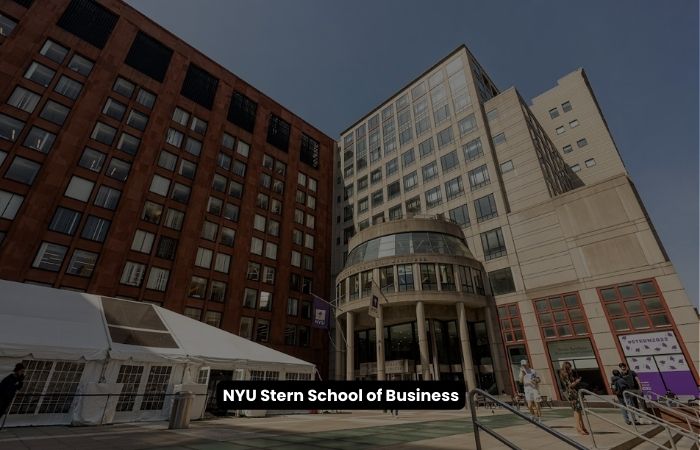
NYU Stern School of Business offers a finance MBA program that is highly regarded for its strong focus on both corporate finance and investment banking.
Located in the financial hub of New York City, Stern provides students with a strategic advantage in accessing internships, networking events, and job opportunities with leading financial firms.
The finance curriculum at Stern includes core courses in corporate finance, investment banking, and financial strategy, along with a broad selection of electives that allow students to specialize in areas such as real estate finance, global banking, and quantitative finance.
The program emphasizes practical skills and real-world applications, preparing students for the dynamic and fast-paced finance industry.
Stern’s location also provides students with unique experiential learning opportunities, such as the Stern Investment Management and Research Society and the Michael Price Student Investment Fund, where students manage real investment portfolios.
Additionally, Stern’s strong alumni network and connections with Wall Street firms enhance career prospects for graduates.
Admission Requirements
- Minimum Level of Education Completed: Bachelor’s Degree
- Average GPA: 3.5
- Average Standardized Test Scores:
- GMAT: 720
- GRE: 164 Verbal, 164 Quantitative
- Minimum Language Test Scores:
- IELTS: 7.0
- TOEFL: 106
- DUOLINGO: 125
Career Paths
Graduates of NYU Stern’s MBA program often pursue careers in investment banking, corporate finance, and asset management.
The program’s strong focus on practical finance skills and its strategic location in New York City prepare graduates for high-level roles in the finance industry. Stern’s extensive alumni network and connections with Wall Street firms provide graduates with valuable career opportunities.
Unique Aspects
NYU Stern’s location in New York City provides unique experiential learning opportunities and access to top financial firms.
The school’s Stern Investment Management and Research Society and Michael Price Student Investment Fund allow students to manage real investment portfolios, gaining hands-on experience in finance.
Stern’s strong alumni network and connections with Wall Street firms enhance career prospects for graduates.
8. University of California, Berkeley Haas School of Business
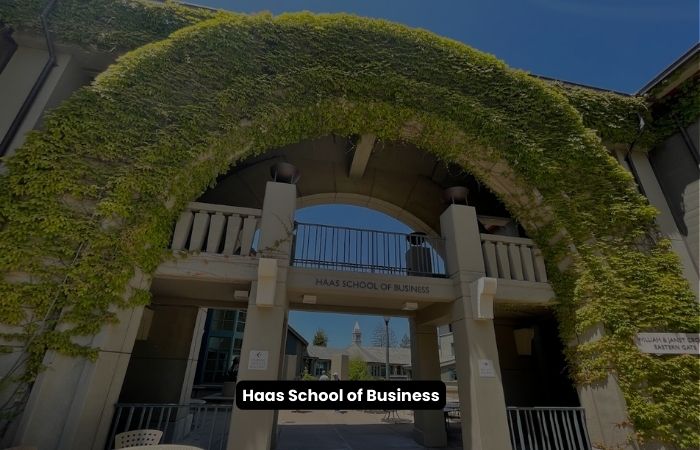
The Haas School of Business at the University of California, Berkeley offers a finance MBA program known for its innovative curriculum and strong emphasis on leadership.
Haas’s finance curriculum covers core areas such as financial management, investment analysis, and global finance, preparing students for diverse roles in the finance industry.
Haas stands out for its commitment to sustainability and social responsibility in finance. The school’s Sustainable and Impact Finance Initiative integrates environmental, social, and governance (ESG) factors into finance education, equipping students to address global challenges through finance.
Students at Haas benefit from the school’s location in the San Francisco Bay Area, a hub for technology and innovation.
The Berkeley Haas Finance Club and Haas Socially Responsible Investment Fund provide students with hands-on experience and networking opportunities in finance.
Admission Requirements
- Minimum Level of Education Completed: Bachelor’s Degree
- Average GPA: 3.6
- Average Standardized Test Scores:
- GMAT: 720
- GRE: 164 Verbal, 164 Quantitative
- Minimum Language Test Scores:
- IELTS: 7.0
- TOEFL: 106
- DUOLINGO: 125
Career Paths
Graduates of Berkeley Haas often pursue careers in venture capital, investment banking, and corporate finance.
The program’s focus on leadership and sustainability in finance prepares graduates for roles as financial analysts, portfolio managers, and strategic advisors.
Haas’s strong ties to the Bay Area tech community provide graduates with unique opportunities in fintech and innovative finance sectors.
Unique Aspects
Berkeley Haas’s emphasis on sustainability and impact finance sets it apart from other MBA programs.
The school’s Sustainable and Impact Finance Initiative prepares students to address global challenges through finance, integrating ESG factors into financial decision-making.
Haas’s location in the San Francisco Bay Area offers proximity to leading tech firms and venture capital, enhancing internship and job placement opportunities.
9. Northwestern University Kellogg School of Management
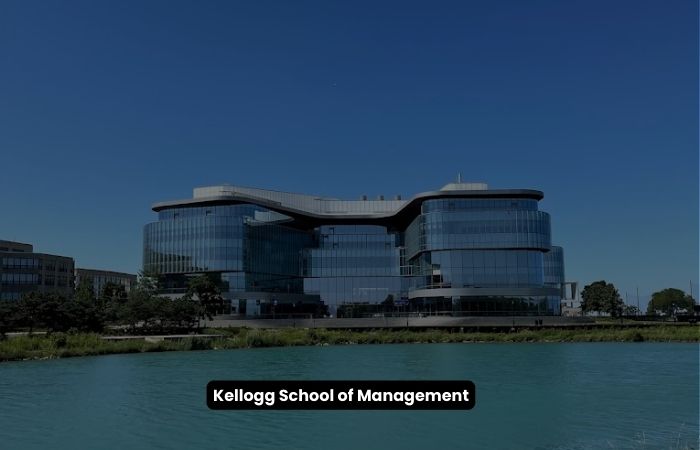
The Kellogg School of Management at Northwestern University offers a finance MBA program known for its collaborative culture and emphasis on leadership.
Kellogg’s finance curriculum includes core courses in corporate finance, investments, and financial institutions, along with electives that allow students to specialize in areas such as mergers and acquisitions, private equity, and risk management.
Kellogg’s unique approach integrates finance with other business disciplines, emphasizing strategic thinking and leadership.
The school’s strong emphasis on teamwork and collaboration prepares students to excel in diverse and dynamic environments. Kellogg also offers numerous experiential learning opportunities, including the Asset Management Practicum and Private Equity Lab.
Kellogg’s location in the Chicago area provides access to a major financial hub, enhancing internship and job placement opportunities.
The school’s extensive alumni network and strong connections with leading financial institutions further support career advancement for graduates.
Admission Requirements
- Minimum Level of Education Completed: Bachelor’s Degree
- Average GPA: 3.7
- Average Standardized Test Scores:
- GMAT: 730
- GRE: 165 Verbal, 165 Quantitative
- Minimum Language Test Scores:
- IELTS: 7.5
- TOEFL: 109
- DUOLINGO: 130
Career Paths
Graduates of Kellogg’s MBA program often pursue careers in investment banking, corporate finance, and financial consulting.
The program’s strong focus on leadership and strategic thinking prepares graduates for roles as financial managers, CFOs, and investment strategists.
Kellogg’s extensive alumni network and connections with leading financial institutions provide graduates with valuable career opportunities.
Unique Aspects
Kellogg’s emphasis on leadership and collaboration sets it apart from other MBA programs.
The school’s integration of finance with other business disciplines prepares students for strategic roles in the finance industry.
Kellogg’s experiential learning opportunities, such as the Asset Management Practicum and Private Equity Lab, provide hands-on experience, further enhancing students’ readiness for finance careers.
10. University of Michigan Ross School of Business
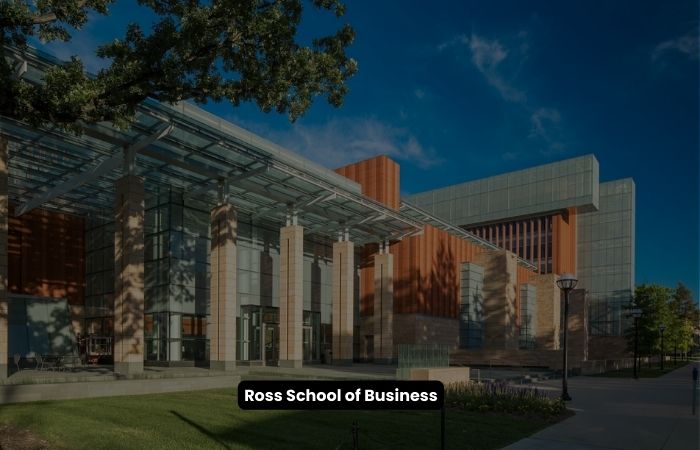
The Ross School of Business at the University of Michigan offers a finance MBA program known for its action-based learning approach and strong emphasis on leadership.
Ross’s finance curriculum covers essential topics such as corporate finance, investment management, and financial strategy, providing students with a comprehensive understanding of the finance industry.
Ross’s unique Multidisciplinary Action Projects (MAP) program allows students to work on real-world finance projects with companies, gaining practical experience and industry insights.
The school’s emphasis on leadership development and teamwork prepares students to excel in dynamic and complex business environments.
Ross also offers numerous resources for finance students, including the Tozzi Center for Research in Integrated Finance and the Zell Lurie Institute for Entrepreneurial Studies.
These centers provide access to cutting-edge research, industry insights, and networking opportunities. The school’s location in Ann Arbor offers a vibrant campus life and proximity to major financial hubs.
Admission Requirements
- Minimum Level of Education Completed: Bachelor’s Degree
- Average GPA: 3.5
- Average Standardized Test Scores:
- GMAT: 720
- GRE: 164 Verbal, 164 Quantitative
- Minimum Language Test Scores:
- IELTS: 7.0
- TOEFL: 106
- DUOLINGO: 125
Career Paths
Graduates of Ross’s MBA program often enter roles in venture capital, private equity, investment banking, and financial technology.
Many leverage the school’s strong ties to Silicon Valley to secure positions in tech finance, working with startups and established tech companies.
Additionally, graduates find opportunities in hedge funds, asset management, and financial consulting, benefiting from the school’s extensive network and reputation.
Unique Aspects
Ross’s action-based learning approach, exemplified by the Multidisciplinary Action Projects (MAP) program, provides students with hands-on experience in real-world finance projects.
The school’s emphasis on leadership development and teamwork prepares students to excel in dynamic and complex business environments.
Ross’s Tozzi Center for Research in Integrated Finance and Zell Lurie Institute for Entrepreneurial Studies offer access to cutting-edge research and industry insights.
Key Takeaways from the Top 10 Finance MBA Programs in the USA for 2024
Certainly! Here’s a table summarizing the key takeaways from the detailed descriptions of the top 10 Finance MBA programs in the USA for 2024:
| School Name | Location | Unique Aspects | Average GPA | Average GMAT | Career Paths | Tuition Fee | Official Website |
|---|---|---|---|---|---|---|---|
| Harvard Business School | Boston, MA | Case study method, FIELD program | 3.7 | 730 | Investment banking, private equity, hedge funds, venture capital | $84,000 per year | HBS Website |
| Stanford Graduate School of Business | Stanford, CA | Experiential learning, Leadership Labs, Global Management Immersion Experience | 3.8 | 737 | Venture capital, private equity, fintech, investment banking | $77,050 per year | Stanford GSB Website |
| Wharton School of the University of Pennsylvania | Philadelphia, PA | Extensive finance curriculum, strong analytical focus, numerous research centers | 3.6 | 730 | Investment banking, asset management, private equity, hedge funds | $84,874 per year | Wharton Website |
| University of Chicago Booth School of Business | Chicago, IL | Data-driven approach, strong economic theory foundation, experiential learning | 3.5 | 730 | Financial analysis, investment banking, private equity, hedge funds | $77,841 per year | Booth Website |
| MIT Sloan School of Management | Cambridge, MA | Emphasis on innovation and technology, hands-on learning, strong focus on financial engineering | 3.6 | 730 | Investment banking, financial consulting, fintech, corporate finance | $82,000 per year | Sloan Website |
| Columbia Business School | New York, NY | Integration with financial industry, Heilbrunn Center, Program for Financial Studies | 3.5 | 720 | Investment banking, asset management, private equity, hedge funds | $80,472 per year | Columbia Website |
| NYU Stern School of Business | New York, NY | Strong focus on corporate finance and investment banking, hands-on learning opportunities, strategic location | 3.5 | 720 | Investment banking, corporate finance, asset management | $82,326 per year | Stern Website |
| University of California, Berkeley Haas School of Business | Berkeley, CA | Emphasis on sustainability, Sustainable and Impact Finance Initiative, strong tech community ties | 3.6 | 720 | Venture capital, investment banking, corporate finance, fintech | $71,817 per year | Haas Website |
| Northwestern University Kellogg School of Management | Evanston, IL | Collaborative culture, leadership focus, strong integration with other business disciplines, experiential learning | 3.7 | 730 | Investment banking, corporate finance, financial consulting | $78,276 per year | Kellogg Website |
| University of Michigan Ross School of Business | Ann Arbor, MI | Action-based learning (MAP program), strong leadership development focus, numerous finance resources | 3.5 | 720 | Venture capital, private equity, investment banking, fintech | $72,114 per year | Ross Website |
Conclusion
The top 10 Finance MBA programs in the USA for 2024 offer unparalleled opportunities to gain expertise and network with industry leaders. These programs provide rigorous coursework, hands-on experience, and specialized career paths in areas such as investment banking, private equity, and financial technology. The average tuition fees for these programs range from $71,817 to $84,874 per year, and factors to consider when choosing a program include career goals, program curriculum, school reputation, faculty expertise, cost and financial aid, program format, and campus culture and location.
